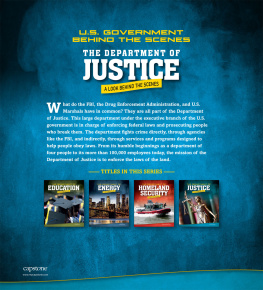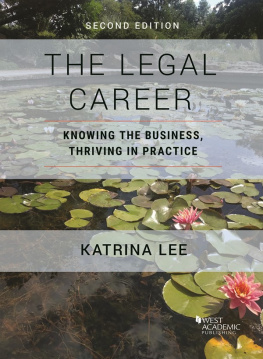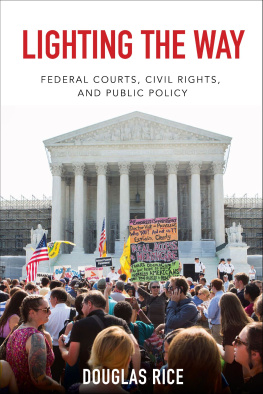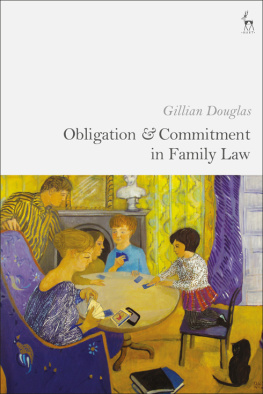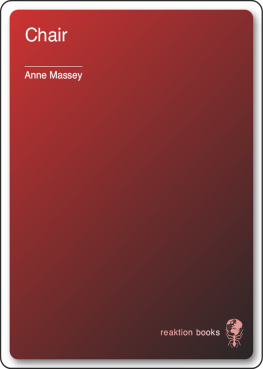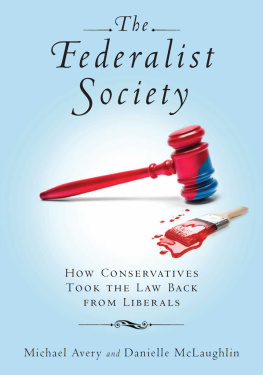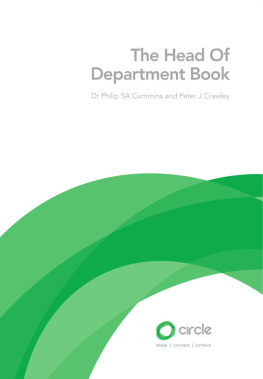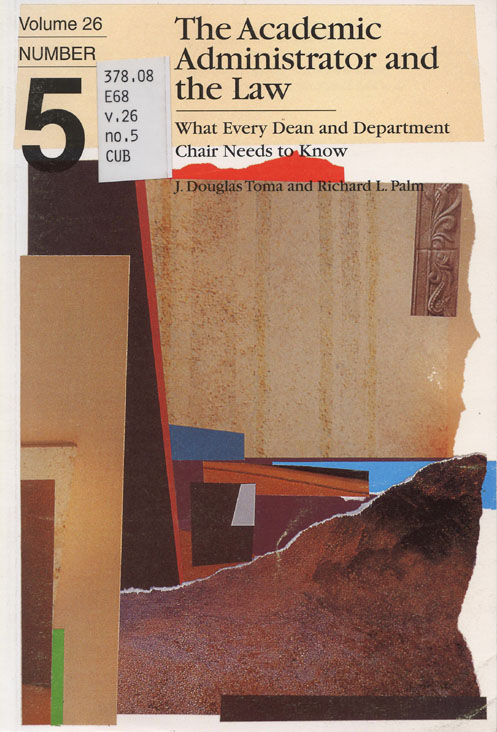Contents

Cite as
Toma, J. Douglas, and Richard L. Palm. 1999. The Academic Administrator and the Law: What Every Dean and Department Chair Needs to Know. ASHE-ERIC Higher Education Report Volume 26, No. 5. Washington, D.C.: The George Washington University, Graduate School of Education and Human Development.
Library of Congress Catalog Card Number 98-88006 ISSN 0884-0040 ISBN 1-878380-85-0
Managing Editor: Lynne J. Scott Manuscript Editor: Barbara M. Fishel Cover Design by Michael David Brown, Inc., The Red Door Gallery, Rockport, ME
The ERIC Clearinghouse on Higher Education invites individuals to submit proposals for writing monographs for the ASHE-ERIC Higher Education Report series. Proposals must include:
1. A detailed manuscript proposal of not more than five pages.
2. A chapter-by-chapter outline.
3. A 75-word summary to be used by several review committees for the initial screening and rating of each proposal.
4. A vita and a writing sample.
ERIC Clearinghouse on Higher Education
Graduate School of Education and Human Development
The George Washington University
One Dupont Circle, Suite 630
Washington, DC 20036-1183
The mission of the ERIC system is to improve American education by increasing and facilitating the use of educational research and information on practice in the activities of learning, teaching, educational decision making, and research, wherever and whenever these activities take place.
This publication was prepared partially with funding from the Office of Educational Research and Improvement, U.S. Department of Education, under contract no. ED RR-93-002008. The opinions expressed in this report do not necessarily reflect the positions or policies of OERI or the Department.
EXECUTIVE SUMMARY
The deans and chairs who direct academic programs at universities, colleges, and community colleges frequently must address issues that raise legal questions. It is difficult to name a program or a service in higher education that does not intersect with the law in some way. The academic administrator must develop the skills needed to recognize the legal issues that invariably shape the policies and decisions made in a school or department. And deans and chairs must understand the resources available to assist them in resolving these issues, particularly when to call for legal advice.
What Legal Issues Might Arise for Deans and Chairs?
A variety of legal issues are likely to arise in university and college schools and departments. The most common ones involve contract and tort matters for staff and students, constitutional or statutory due process and equal protection, free expression, and external regulation in areas such as immigration and copyrights. The sources of the law that govern these issues are also numerous, ranging from the U.S. Constitution and the constitutions of the states, to state and federal legislation and administrative rule making, to judicial decisions made at all levels, to institutional rules and regulations, to institutional custom and practice.
Does the Legal Community Defer to Academic Decision Making?
Common across all types of legal issues, sources of law, and institutions is a traditional legislative and judicial deference to academic decision making. Though this traditional deference has eroded over time, it remains pronounced across higher education. But despite the considerable autonomy the law has customarily afforded higher education, it treats public and private institutions differently, and it applies different rules to religious and secular universities and colleges. In particular, public institutions are subject to constitutional provisions.
What Are the Roles of Institutional Counsel and Academic Deans and Chairs?
Academic administrators must not only know what the law is, but also understand the roles of counsel and the procedural contexts within which lawyers work. Deans and chairs frequently work with attorneys, both those retained by the institution and those hired in a personal capacity. These lawyers perform a variety of functions, and they owe their loyalty to different institutional clients at different times. One factor is relatively constant, however: Information exchanged between counsel and client is privileged and cannot be divulged.
Also of interest to academic administrators are the actual process of litigation-from complaint and answer, to discovery and trial (or settlement), to decision and remedy-and the issues of authority and delegation that determine whether individuals or institutions will be held liable.
What Issues Do Academic Administrators Face Daily?
The essence of the relationship between employers and employees is the employment contract, whether within the context of one-on-one bargaining between two parties or as part of a broader collective bargaining agreement. Closely related to employment contracts are decisions about hiring and promotion, each of which raises issues of equal protection and due process, particularly given constitutional provisions and statutory protections under the antidiscrimination laws. Moreover, these same issues commonly arise in matters of reappointment, tenure, promotion, and the dismissal and retirement of tenured faculty and staff. Affirmative action frequently plays a role in the employment relationship.
Academic administrators must keep in mind several very practical concerns in hiring and promoting faculty and staff: avoiding inappropriate questions during the interview, respecting individual privacy rights, and following immigration laws. Deans and chairs must also understand and respect faculty members right of academic freedom while still evaluating faculty performance, taking action when it is insufficient, and investigating and perhaps punishing misconduct by employees, such as sexual harassment.
Courts increasingly decide cases involving students using implied contract theories, having moved from the traditional doctrine of in loco parentis. Institutions are no longer necessarily assumed to have a parental-type relationship with students. Students are viewed as consumers with reasonable expectations of institutions for programs and services. In addition, although the traditional deference to academic decision making persists, courts are ever more willing to intervene in campus disciplinary actions involving both academic concerns and disciplinary matters. Typically, the key question in disciplinary matters is due process: How much notice and how much process is a student entitled to in a given situation?
Similarly, although courts continue to afford broad discretion to academic administrators in the area of admissions, institutions may be held in violation of the antidiscrimination laws and Equal Protection Clause of the U.S. Constitution when they act in a discriminatory manner, including in the emerging area of disability. Immigration law is also a common issue in admissions. Deans and chairs must also be aware of legislation that governs the confidentiality of students records, as well as constitutional provisions that protect the right of students to organize and express themselves. Finally, negligence-based institutional liability involving students is a critical concern for academic administrators.
Several state and federal regulations have a substantial effect on administrative decisions for schools and departments, particularly those addressing intellectual property, open meetings, family and medical leave, funded research, and taxation. Similarly, schools and departments are typically heavily involved in accreditation coordinated by private associations that serve a quasi-regulatory function.




